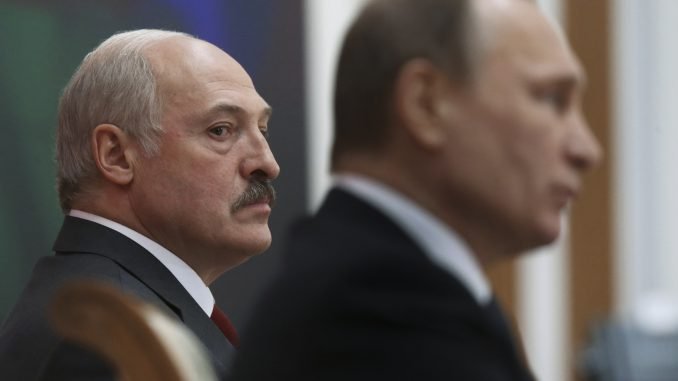
President D. Grybauskaitė‘s foreign policy toward the east, first and foremost toward Russia and Belarus, was controversial and hypocritical. How will her successor G. Nausėda act?
At the start of her first term, D. Grybauskaitė‘s foreign policy sought a “pragmatic reboot” of relations with Moscow and Minsk, cast such “paupers” as Ukraine, Georgia or Moldova overboard, categorically opposed European sanctions against Belarus and, most importantly, sanction policy overall, while also opposing setting aside 2% of GDP for defence spending Vytautas Bruveris wrote in lrytas.lt
Now she is one of the fiercest supporters of Russia’s political and economic isolation, as well as sanctions toward it, one of the fiercest opponents of Kremlin aggression on all fronts.
Meanwhile, on the Belarussian front, following failed “reboots”, no clearer policy position ever emerged. Only meek following of the European bigs, who abolished sanctions against Minsk several years ago.
Grybauskaitė and China
One of D. Grybauskaitė‘s last major foreign visits, to none other than China, was especially eloquent.
The sort of praise to the great dragon of the East, which the Lithuanian president sang to the communist dictatorship, the dragon rarely hears even from its closest friends such as V. Putin.
D. Grybauskaitė praised China as a desired investor into Lithuania’s economy, despite national threat reports at the time, once aimed solely at Russia, now setting aside a few chapters regarding China as well.
G. Nausėda’s ambiguous talks about greater cooperation with who knows whom in Russia were, of course, an electoral flirt with the segment of Lithuanian voters, to whom the current tone of official Vilnius toward Moscow is unappealing. What is most important is whether Lithuania’s behaviour toward Russia will be real politics, rather than a selection of demarches based on mostly militant slogans.
Will Lithuania, declaring itself the West’s main expert of Russia and most familiar in combatting it, begin to propose real policy plans regarding Russia? Ones where consistent and complex aims of pressuring the regime would be coordinated with withdrawal and perhaps dismantling recipes.
G. Nausėda’s plans regarding Minsk appear far more specific and clear. The core of them is friendship with the regime’s leadership and even A. Lukashenko.
The president-elect has repeated a number of times a mantra from within Lithuania’s chaotic and controversial Belarus policy, which is typically an excuse for the occasional particularly fiery flirt with Minsk and its owner than usual. Supposedly, A. Lukashenko, however you take it, is the only defender of the Belarussian state from Russia, which seeks to swallow it whole. So take it that not only Lithuania but also the West must grit their teeth and support A. Lukashenko.
Lukashenko and the Kremlin
It has long been clear that this supposedly “realist” and “pragmatical” theory is intended to justify the pandering of Lithuania and all of Europe when A. Lukashenko exploits them in order to receive extra funding, which Moscow may be wanting to withhold at some point.
Or simply money it cannot give and instead permits its pet to act as if a cunning player – once again in order for the West to happily clap and celebrate that they used A. Lukashenko against the Kremlin.
The reality is though that two dictatorships (especially when one of them is incomparably stronger and they both have the same parents) will always be a natural pairing.
A. Lukashenko never had and does not have any other recourse than to cling to the Kremlin. This means that Belarus will inevitably be sold out to Russia. Western support for A. Lukashenko simply somewhat improves his negotiating position with Moscow over personal safety guarantees and the final price.
Lithuania and the West should at the very least stay somewhat back from this process and not try to naively play with fire, trying to support a rapidly deteriorating regime if it really cannot and does not want to create its own policy and seek leverage for it.
But as we can see, the future foreign policy strategist of the country may wade into where his predecessor had before. Just not up to the knees, but deeper.


Be the first to comment